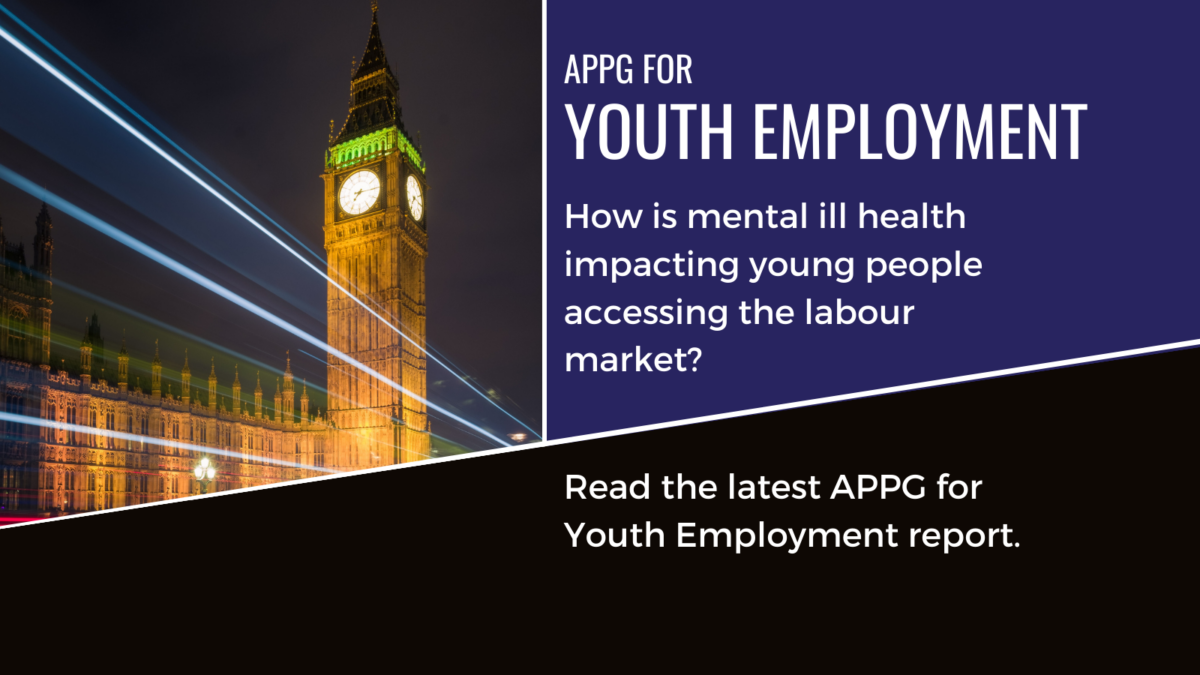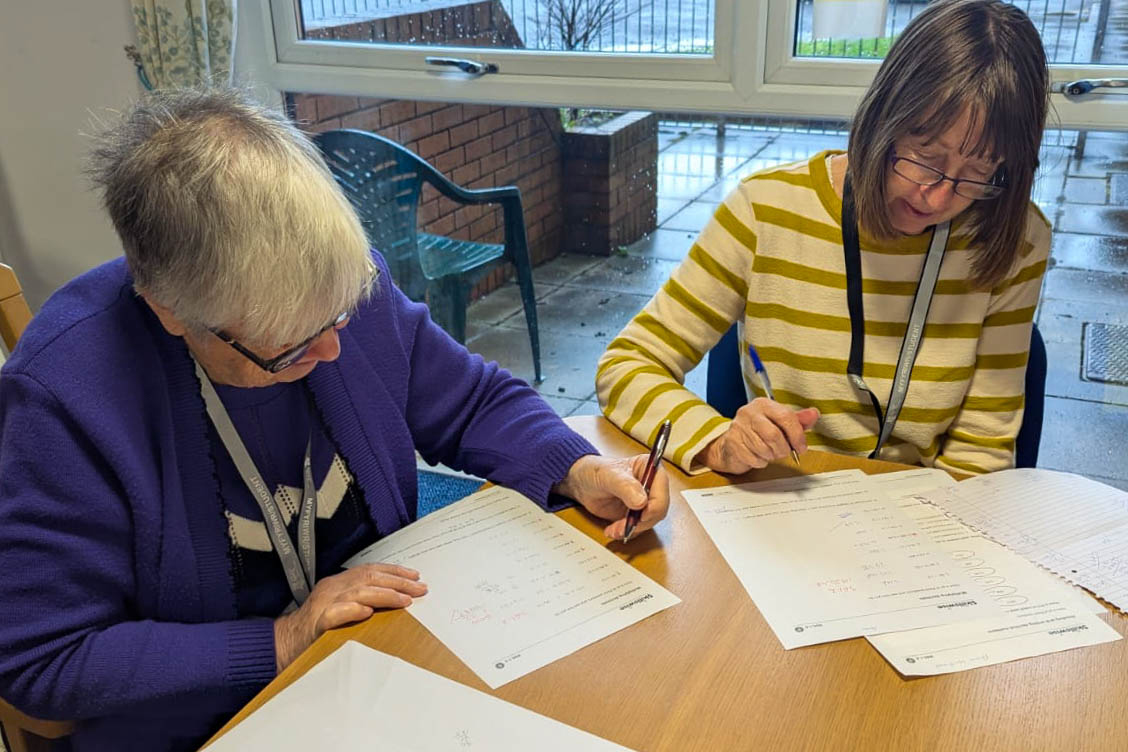Tackling mental ill health is vital for tackling youth economic inactivity: APPG for Youth Employment report

Two out of three young people who are economically inactive also have a common mental health disorder, reveals evidence submitted to the APPG for Youth Employment’s latest inquiry, “The impact of mental ill health on young people accessing the labour market and good quality work.”
The APPG for Youth Employment Report launched its latest report on Tuesday 24th January and presented the key findings and recommendations to the Minister for Social Mobility, Youth and Progression, Mims Davies MP.
The Minister welcomed the report and acknowledged the significant challenges facing young people regarding their mental health and wellbeing. The Minister also recognised the importance of adopting a cross-departmental approach to addressing some of the key issues raised in the report and reiterated her commitment to supporting all young people in their journey through education and into employment. We look forward to continuing working with the Minister and her department on the recommendations of this report and youth unemployment more broadly.
The inquiry ran between October 2022 and January 2023 hearing from key experts and young people themselves.
Report Key Findings:
- The number of young people experiencing mental ill health is growing at an alarming rate.
- Existing mental health support services are struggling to keep demand.
- The impacts of COVID-19 and the subsequent lockdown have exacerbated the mental health crisis facing young people.
- There is a worrying link between economic inactivity and mental ill health amongst young people.
- Young people with protected characteristics, those from poorer socio-economic backgrounds, young carers and care-experienced young people are more vulnerable to mental ill health.
Key Quotes:
“The impact of the COVID-19 pandemic has exacerbated pre-existing issues in relation to mental ill-health. This is illustrated in many councils’ local NEET data, which shows a significant growth in the number of young people who are not active in the labour market due to ill-health; with mental ill-health being a prominent factor.” Local Government Association
“Mental health prevalence is known to be higher for specific groups of young people who may be more likely to experience discrimination in society, such as LGBTQ+ young people, a clear example of health inequalities” Association for Young People’s Health
Conclusions and Recommendations:
The government should recognise the long-term risks to both young people and the labour market of not addressing this issue. Rising mental ill health amongst young people has the potential to lock out significant numbers of young people from the labour market and drive up economic inactivity over the longer-term, risking the individual happiness, wellbeing and health of those young people and contributing to a labour shortage in a tight labour market.
To address the rising mental health emergency amongst young people, interventions and support must be holistic, recognising that young people with mental ill health often face additional challenges and barriers in different aspects of their daily lives. Ensuring inclusive and tailored support responds to the different needs of different demographic groups and those with protected characteristics.
The APPG for Youth Employment has put forward a full set of recommendations for the Government to consider to support young people with mental ill health on their journey to accessing the labour market and good quality work.
Laura-Jane Rawlings, CEO of Youth Employment UK, says:
“Young People MUST have structured, consistent and connected help around them to support good mental health and positive transitions. We know young people aren’t getting enough support and we know too that there is inequality and injustice in the support given to young people, with those with protected characteristics once again most likely to be missing out.
The evidence the mental health crisis in the UK is having on individuals, the economy and productivity is growing, we will be feeling the long-term impact of COVID-19 and the Cost of Living Crisis for a long time to come. This report should serve as an important moment for the government of today and tomorrow to act boldly to fix the systems supporting young people.”












Responses